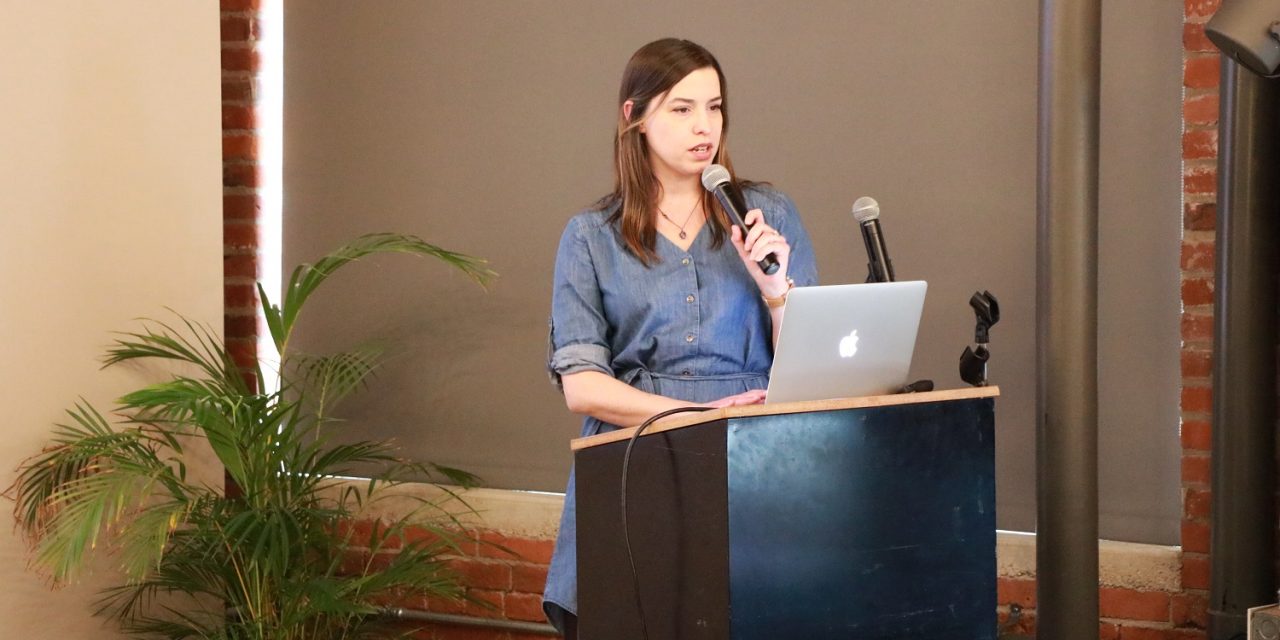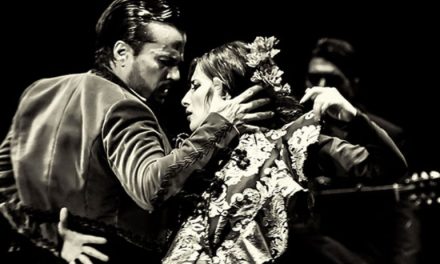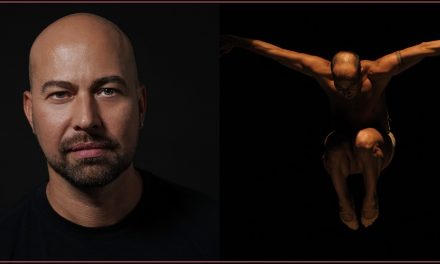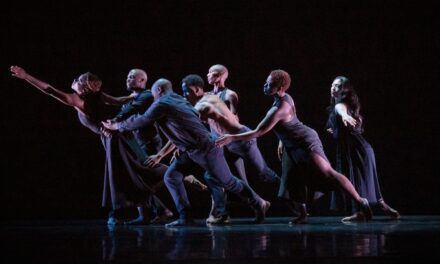May is National Mental Health Awareness Month. As it comes to a close, several new and expanding organizations, focused on mental health for dancers, are bringing exciting and much needed education, outreach, and support to the dance world. I spoke to the leaders of two such programs, Kristin Deiss and Michelle Loucadoux of the newly launched Danscend and Kathleen McGuire Gaines of Minding the Gap.
To say that dancers have been disproportionately affected by the pandemic and COVID era shutdowns would be a huge understatement. There have been countless symposiums (all online), conversations, and reckonings in the dance community; locally, nationally and internationally over the last eighteen months. For a deep dive into all of the mental health challenges faced, check out the incredible series produced by The International Association for Dance Medicine and Science. The nine episodes feature a working group made up of Drs. Nancy Kadel (Seattle), Bonnie Robson (Toronto), Paula Thomson (Los Angeles), President of the International Association for Dance Medicine and Science, Mr. Peter Lewton-Brain (Monaco) and IADMS member and moderator Dr. Lynda Mainwaring (Toronto). They discuss in great detail their findings and give advice and share coping mechanisms to help dancers navigate the pandemic and post pandemic landscape. Theirs is just one avenue to explore. A search for “dancers’ mental health” on YouTube yields pages of video suggestions. Instagram has numerous accounts focused on dancers’ emotional well being, including psychotherapy, eating disorder recovery, dance trauma and perfectionism. Clearly the challenges of the pandemic opened up conversations that were just below the surface, ready to explode. Individual dancers such as Kathryn Morgan and Sarah Lane have also recently shared details of their own experiences and the dangerous pressures of the dance world. Journalist Chloé Angyal just released Turning Pointe: How a New Generation of Dancers Is Saving Ballet From Itself, which has numerous chapters dedicated to teasing out the particulars of dancers’ brains.
One of the first dancers to write a matter of fact accounting of her experience with depression in the dance world was Kathleen McGuire Gaines. Her 2017 article for Dance Magazine, Why Are We Still So Bad At Addressing Dancers’ Mental Health, detailed how she left ballet due to untreated depression. It went viral and led to her founding Minding the Gap. Minding the Gap is dedicated to seeing mental health treated with the same seriousness as physical health in dance culture.
Since founding Minding the Gap, Ms. McGuire Gaines has become one of the leading advocates for dancers’ mental health in the world. After the success of the article, she conducted, in collaboration with Dance Magazine and psychologist Dr. Brian T. Goonan, a survey of over 800 dancers about their mental health. The data from that survey continues to inform the work of many professionals. Additionally, she shares intensely personal stories while connecting and collaborating with highly regarded mental health professionals with specialties ranging from abuse, to depression, to eating disorders. She is a regular guest on dance and theater oriented podcasts, and has also hosted her own interviews with dance luminaries.
 Minding the Gap’s recent work has been in collaboration with Point Park University and their dance program. She hopes that the program that they have developed will be extrapolated to other institutions. I spoke with Ms. McGuire Gaines about the work that she is doing, focusing on her work to reform institutions in order to elevate the mental health of dance students and professionals. In addition to the program at Point Park, starting this month she is making Minding the Gap’s services available directly to dance institutions’ leadership, teachers and also to mental health professionals. The goal is to create dance savvy therapists who both understand the context of a lived experience and have the cultural awareness to really serve the dance community, and to connect these therapists to dance leaders and the community.
Minding the Gap’s recent work has been in collaboration with Point Park University and their dance program. She hopes that the program that they have developed will be extrapolated to other institutions. I spoke with Ms. McGuire Gaines about the work that she is doing, focusing on her work to reform institutions in order to elevate the mental health of dance students and professionals. In addition to the program at Point Park, starting this month she is making Minding the Gap’s services available directly to dance institutions’ leadership, teachers and also to mental health professionals. The goal is to create dance savvy therapists who both understand the context of a lived experience and have the cultural awareness to really serve the dance community, and to connect these therapists to dance leaders and the community.
 Ms. McGuire Gaines said that when she first started her work, she had a deep concern for the individual dancer. While this has not lessened, she now realizes that the best route to change in the dance world is a growing body of mental health experts who can train teachers. Teachers come into their craft with their own history and trauma. “It [trauma and abusive practices] is all so normalized that they don’t realize their methods are problematic, therefore it becomes a generational cycle” She was pleasantly surprised that many teachers, rather than being defensive, are actually quite open to change and reform. “If I can help a teacher, choreographer or director, I can help everyone that they come into contact with. So that is a primary focus of the program.”
Ms. McGuire Gaines said that when she first started her work, she had a deep concern for the individual dancer. While this has not lessened, she now realizes that the best route to change in the dance world is a growing body of mental health experts who can train teachers. Teachers come into their craft with their own history and trauma. “It [trauma and abusive practices] is all so normalized that they don’t realize their methods are problematic, therefore it becomes a generational cycle” She was pleasantly surprised that many teachers, rather than being defensive, are actually quite open to change and reform. “If I can help a teacher, choreographer or director, I can help everyone that they come into contact with. So that is a primary focus of the program.”
She continues, “Programs need to be as individualized as the schools and companies that they are in. ALL spaces need mental health skills training and education, but it looks different [in each space]”
She knows that the sea change she seeks is a big ask for an already stressed industry. She also knows that it is worth the fight. “Systemic cultural change for mental health starts at the top. It requires courageous leaders willing to do the work and allocate the funds.” It is necessary to keep dance alive. As quoted from the Dance USA field research study on her website:
50% of the dance audience consists of current and former dancers. It is imperative, not only for the wellness of the individual, but also the art form, that we train dancers with respect for their mental wellness so that they become future patrons, donors and enroll their own children in dance schools.
Kristin Deiss and Michelle Loucadoux are approaching the same problem from the other side, reaching out to much younger dancers, starting at age thirteen. They are launching their new dance centered mental wellness educational organization, Danscend, this month. Through tightly curated twelve week courses covering three topics each, they hope to demystify the entire idea of mental wellness for the dance community. Both Ms. Deiss and Ms. Loucadoux are seasoned performers and teachers. They met while working together at Hussian College in Los Angeles. Ms. Deiss is currently the program chair of the commercial dance department, a job she inherited from Ms. Loucadoux. Each came from a ballet background then took alternate career paths, eventually ending up in Los Angeles.
Ms. Loucadoux grew up as a self-proclaimed ballet nerd, spending summers training at ABT. She danced for regional ballet companies before moving on to a fifteen year career performing on Broadway, starring in shows including The Little Mermaid and Mary Poppins. She moved to L.A. to act in TV and film and though she did find success, discovered that she did not like it. However, at the same time, she was introduced to teaching, which she loved. She went on to earn an MBA and became a successful writer, all while climbing the academic ladder, eventually becoming associate dean of undergraduate studies at Hussian Studio School. She left that position last year to focus on both building Danscend and her writing career.
Ms. Deiss began her dance training at the Rock School of the Pennsylvania Ballet before attending both the School of American Ballet as well as the Miami City Ballet School. After a year-long struggle with Juvenile Rheumatoid Arthritis, she left ballet behind to pursue a path of healing. Kristin is a certified yoga teacher through the Mind Body Dancer program, a Reiki Master, and an Integrated Energy Practitioner. Kristin also holds a BA in History from Drew University, an MA in History from UNC Chapel Hill, and an MFA in Dance Performance and Choreography from Tisch School of the Arts at NYU. She too eventually returned to dance, performing and teaching in Los Angeles. (disclaimer: The author has both danced and taught with Ms. Deiss.)
The Danscend program focuses on mental wellness courses for dancers. The company is starting small, with just two current offerings: Nourishing the Whole Dancer and a free five day mental health challenge, Inspiring the Whole Dancer. While the free course takes place mainly through email, the twelve week course is quite extensive, with three main areas of focus divided by months. Month one introduces the dancer to the importance of mental wellness. Month two moves to the concept of self-talk, and month three moves to body image. Future sessions will include units on perfectionism, resilience, identity and compassion. There will also be interactive opportunities and a Facebook support group.
Both Ms. Deiss and Ms. Loucadoux emphasized the importance of demystifying mental wellness for teens. “Dancers need to hear from other dancers, it can make important information palatable to them.”
They have big plans for the company. Future programs include teacher training and a certification for dance studios. Like Ms. McGuire Gaines, they emphasized the need for teachers and leaders to have greater understanding of mental wellness, what constitutes abusive teaching techniques and the evolving dance world. To that end, teachers who have students taking the programs can also take part, for free. These are just two organizations that are starting to really take dancers’ mental health seriously. It is long overdue and a welcome change. If you or a dancer that you know needs support, please take these lessons to heart and reach out for help. Check out the resources listed here. Dance is evolving. Change can happen and with leaders like these three, the future of dance looks much healthier and bright.
Written by Nancy Dobbs Owen for LA Dance Chronicle.
Featured image: Kathleen McGuire Gaines – Photo courtesy of Ascender










